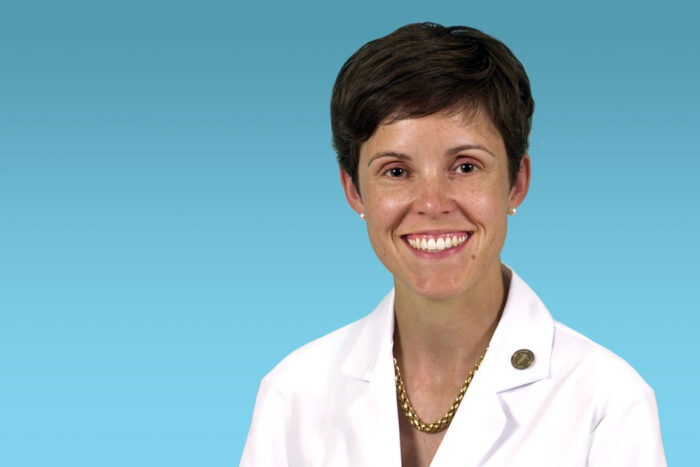Cashen named Institutional Review Board chair
Oncologist to lead board that ensures ethical conduct in human studies
 Washington University
Washington UniversityAmanda Cashen, MD, has been appointed executive chair of Washington University's Institutional Review Board, the group responsible for approving clinical trials involving human subjects.
Amanda F. Cashen, MD, an associate professor of medicine at Washington University School of Medicine in St. Louis, has been named executive chair of the university’s Institutional Review Board (IRB), the multidisciplinary group that reviews and approves protocols for research studies that involve human subjects. The group is responsible for protecting the rights and welfare of anyone participating in a research study conducted by Washington University investigators.
Cashen began her new role May 1. She will serve a four-year renewable term.
“We are delighted Dr. Cashen will be serving in this role,” said Jennifer K. Lodge, PhD, the university’s vice chancellor for research and a professor of molecular microbiology at the School of Medicine. “She has extensive experience in conducting clinical trials of novel therapies for leukemias and lymphomas and has enrolled hundreds of patients in such trials over the past 20 years. Her extraordinary clinical research career and broad knowledge of the IRB process, including the criteria for protocol review and approval, and the regulation for human subjects research make her an excellent choice for this position.”
Cashen was named the IRB executive chair by Lodge, who is also the associate dean for research at the School of Medicine, and Michael A. Kass, MD, the senior associate dean for human research protection and the Bernard Becker Professor of Ophthalmology & Visual Sciences.
Cashen has served as the interim IRB executive chair since October 2018, following the departure of Jonathan M. Green, MD, who had held the position since 2010. Green is now director of the Office of Human Subjects Research Protections of the National Institutes of Health (NIH).
A member of the IRB committee for over 12 years, Cashen also has served as chair of the university’s IRB protocol review committee since 2007, and as a member of the protocol adherence review committee since 2015. In her new role as executive chair, she will be responsible for IRB review and approval of human subject research to make sure it complies with current guidelines, institutional policies, and state and federal regulations governing the protection of human research subjects.
Cashen is the principal investigator of the Lymphoid Malignancies Banking Protocol and specializes in the treatment of patients with various types of blood cancers, including leukemias, lymphomas and myelodysplastic syndromes. Treatment of such patients includes stem cell transplantation and cellular immunotherapies.
Cashen earned her bachelor’s degree in molecular biophysics and biochemistry in 1995 from Yale University and her medical degree in 1999 from Washington University. She continued her training in internal medicine, hematology and medical oncology at Barnes-Jewish Hospital and the School of Medicine, before joining the medical faculty in 2006.






